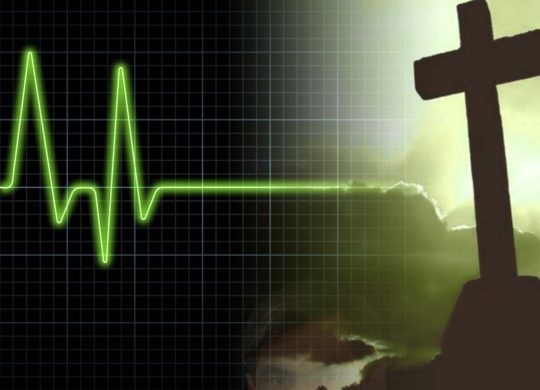Dying?

From the title of this post, you would suspect it’s all going to be something about dying. You would be right. And so, you might not read the rest of it, say researchers.
Declared researchers, from Bar Ilan University (Israel) and Lyon Neuroscience Research Center (France), in “Prediction-based Neural Mechanisms for Shielding the Self from Existential Threat,” published recently in NeuroImage.
The human mind has an automatic tendency to avoid awareness of its mortality.“
Our brains shield us from the existential fear of death by labeling that terminal event as something unfortunate that happens only to other people.
Asserted Prof. Yair Dor-Ziderman, one of the authors:
“We have this primal mechanism that means when the brain gets information that links self to death, something tells us it’s not reliable, so we shouldn’t believe it.”
Well, I’m afraid the news (bad or good, depending on your view of death and what happens subsequently) is not fake.
It is appointed for men to die ….
Hebrews 9:27
But, continues Dor-Ziderman:
The moment you have this ability to look into your own future, you realize that at some point you’re going to die and there’s nothing you can do about it. That goes against the grain of our whole biology, which is helping us to stay alive.”
Yet, death is going to happen to each of us. We can’t deny the stats on that event. It is, said the philosopher Heidegger, “a fact of experience.”
Dor-Ziderman and colleagues employed a system producing signals of surprise in the brain, using portrait photographs of the subject or of another in timed sequences. When an image was shown that was not expected by the brain to be part of the predicted sequence, a signal of surprise was detected. So, surprise signals = unpredictability, proving that the brain was currently active in prediction.
Along with those portrait images were either words associated with death (e.g., “grave,” “funeral,” “burial”) or neutral words.
All went well until a self-image was associated with a death-related word. That apparently shut off the brain’s prediction activity (i.e., no surprise signals when the following sequence of pictures was out of place). The jolt of associating the self with death was, apparently, upsetting, at least deep in the brain!
Added Dor-Ziderman:
Today, society is more death-phobic, with sick people confined to hospitals and elderly people to care homes. As a result, people know far less about the end of life and perhaps come to fear it more.”
And we tend to deny it more and more, putting up more and more defenses to stave off any thoughts of death.
Psychologist Arnaud Wisman, of the University of Kent, had this to say about that:
My own work has found that in modern societies people embraced the ‘escape treadmill,’ where hard work, pub sessions, checking mobile phones and buying more stuff meant people were simply too busy to worry about death. However, it is not a solution to the problem itself. So we need to keep escaping.”
We can’t. Sorry.
Wait—we can!
Jesus said:
“For God so loved the world, that He gave His only begotten Son,
that whoever believes in Him shall not perish, but have eternal life.”
John 3:16
Believing in Christ as one’s only God and Savior, the One who paid the free, full, final price for sin, assures us of eternal life with God, after this life is over.
It is appointed for men to die once and after this comes judgment.
Hebrews 9:27
Yup, that judgment believers escape!
Thanks be to God, who gives us the victory through our Lord Jesus Christ!
1 Corinthians 15:57
SOURCES:
Guardian; NeuroImage











 Abe Kuruvilla is the Carl E. Bates Professor of Christian Preaching at The Southern Baptist Theological Seminary (Louisville, KY), and a dermatologist in private practice. His passion is to explore, explain, and exemplify preaching.
Abe Kuruvilla is the Carl E. Bates Professor of Christian Preaching at The Southern Baptist Theological Seminary (Louisville, KY), and a dermatologist in private practice. His passion is to explore, explain, and exemplify preaching.